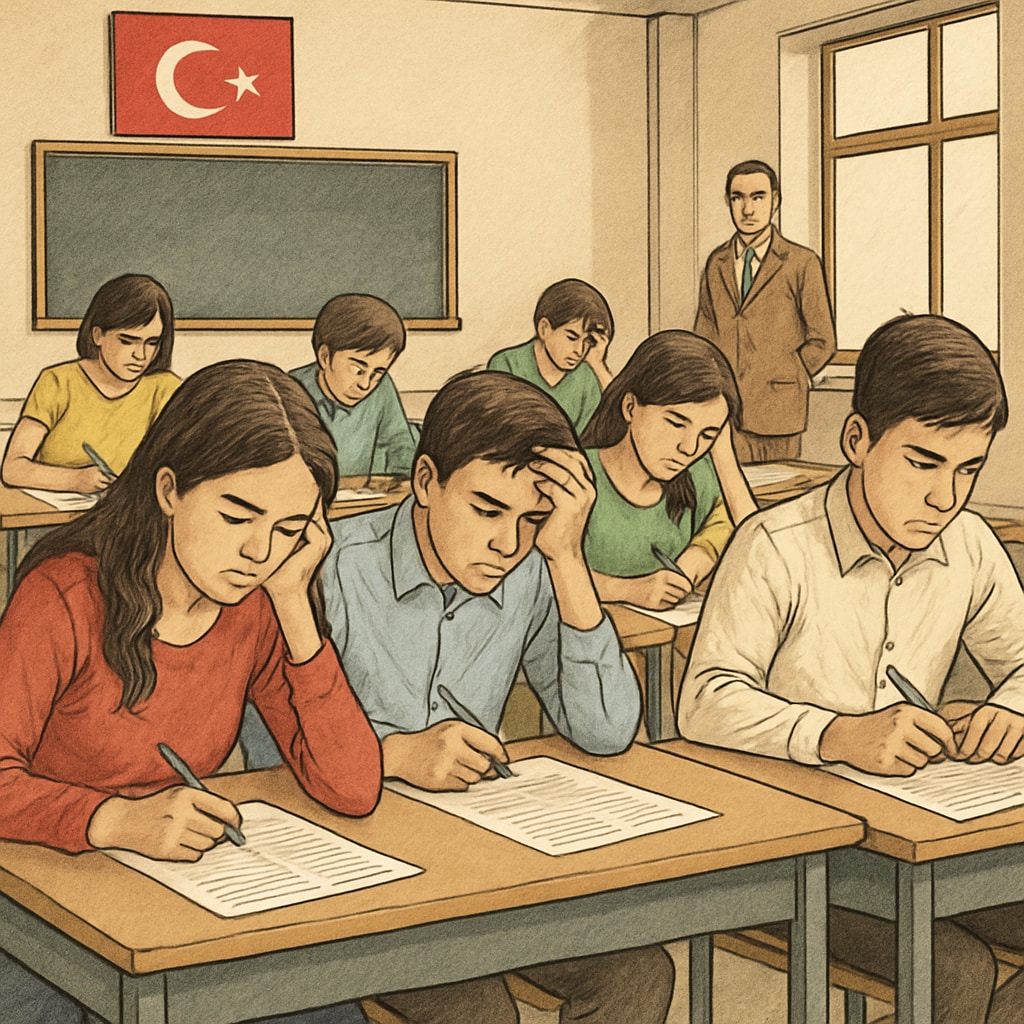Turkey’s exam-driven education system has long been criticized for its over-reliance on standardized tests, leading to immense exam pressure and diminishing student motivation. Meanwhile, the UK’s A Levels system offers an alternative model that emphasizes critical thinking, flexibility, and depth of learning. By adopting lessons from the A Levels approach, Turkey has an opportunity to reform its education system and create a more balanced, innovative, and student-centered learning environment.
Challenges of Turkey’s Exam-Driven Education System
Turkey’s education system is heavily reliant on high-stakes exams, such as the university entrance exam (YKS). These exams dominate the academic journey, often overshadowing holistic learning and personal development. As a result, students focus solely on rote memorization rather than developing critical thinking or problem-solving skills.
The pressure to succeed in these exams can be overwhelming. According to research, many students report heightened levels of stress, anxiety, and burnout during their preparation. The system’s rigidity also leaves little room for students to explore their interests or passions, stifling their intrinsic motivation and creativity.

What Makes the A Levels Model Different?
The UK’s A Levels system stands in stark contrast to Turkey’s exam-driven approach. A Levels allow students to choose a limited number of subjects to study in-depth, providing flexibility and encouraging specialization in areas of interest. This contrasts with Turkey’s broader curriculum, which often prioritizes breadth over depth.
Moreover, A Levels assessments are not solely based on final exams. Coursework, practical evaluations, and project-based assessments contribute to the final grade. This diversified evaluation system reduces the weight of a single exam and allows students to demonstrate their capabilities in various ways.
The flexibility and adaptability of the A Levels system also foster student motivation. By allowing students to focus on subjects they are passionate about, the model nurtures a sense of ownership and excitement about learning. These qualities are crucial for developing lifelong learners and innovators.
How Turkey Can Learn from the A Levels Approach
Reforming Turkey’s education system requires a multi-pronged approach, and the A Levels model offers valuable insights. Here are some actionable steps Turkey could consider:
- Reduce Reliance on High-Stakes Exams: Introduce diversified assessment methods, including coursework, presentations, and project evaluations.
- Encourage Specialization: Allow students to focus on subjects that align with their interests and career aspirations, rather than enforcing a rigid, one-size-fits-all curriculum.
- Foster Critical Thinking: Shift from rote memorization to problem-solving and analytical thinking through curriculum reform.
- Support Teacher Development: Train educators to adopt student-centered teaching methods, emphasizing guidance over instruction.
Implementing these changes would require collaboration among policymakers, educators, and stakeholders. The transition may be gradual, but the long-term benefits for students and society would outweigh the initial challenges.

The Road Ahead: Building a Balanced Education Ecosystem
Turkey’s current education system places enormous burdens on students, parents, and educators alike. By drawing inspiration from the UK’s A Levels model, Turkey can create an ecosystem that prioritizes learning over testing, values creativity, and fosters innovation.
Education is not just about passing exams—it’s about equipping students with the tools they need to succeed in an ever-changing world. A reformed, student-centered system could unlock the potential of Turkey’s youth, driving progress and innovation for generations to come.
In conclusion, the path to reforming Turkey’s education system may not be easy, but it is a necessary journey. By reducing exam pressure, boosting student motivation, and learning from successful models like A Levels, Turkey can build an education system that truly empowers its students.
Readability guidance: The article is structured with concise paragraphs and clear headings for easy reading. Lists and examples are used to summarize key points effectively, and transitions ensure a smooth flow of ideas.


